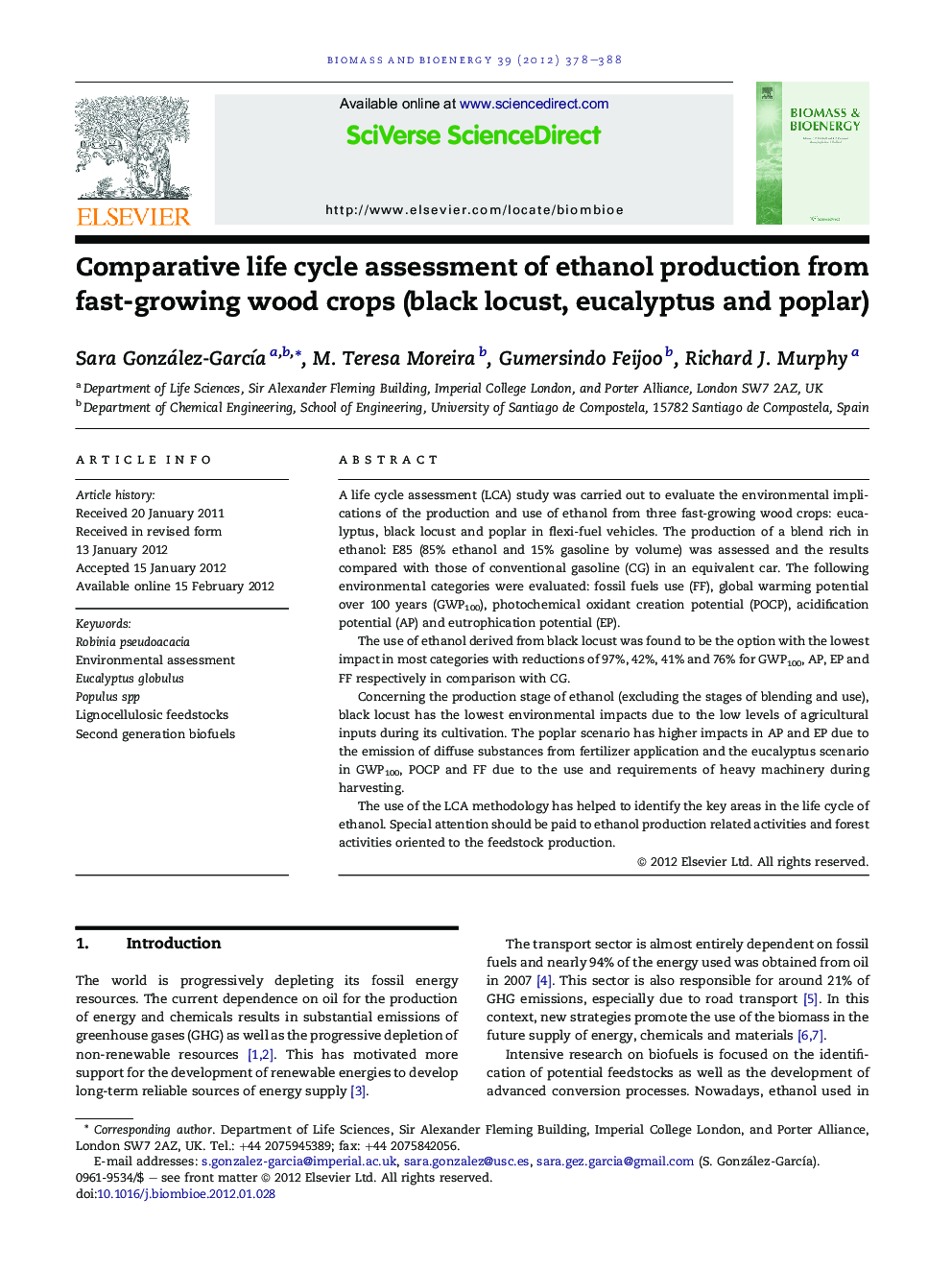| Article ID | Journal | Published Year | Pages | File Type |
|---|---|---|---|---|
| 677521 | Biomass and Bioenergy | 2012 | 11 Pages |
A life cycle assessment (LCA) study was carried out to evaluate the environmental implications of the production and use of ethanol from three fast-growing wood crops: eucalyptus, black locust and poplar in flexi-fuel vehicles. The production of a blend rich in ethanol: E85 (85% ethanol and 15% gasoline by volume) was assessed and the results compared with those of conventional gasoline (CG) in an equivalent car. The following environmental categories were evaluated: fossil fuels use (FF), global warming potential over 100 years (GWP100), photochemical oxidant creation potential (POCP), acidification potential (AP) and eutrophication potential (EP).The use of ethanol derived from black locust was found to be the option with the lowest impact in most categories with reductions of 97%, 42%, 41% and 76% for GWP100, AP, EP and FF respectively in comparison with CG.Concerning the production stage of ethanol (excluding the stages of blending and use), black locust has the lowest environmental impacts due to the low levels of agricultural inputs during its cultivation. The poplar scenario has higher impacts in AP and EP due to the emission of diffuse substances from fertilizer application and the eucalyptus scenario in GWP100, POCP and FF due to the use and requirements of heavy machinery during harvesting.The use of the LCA methodology has helped to identify the key areas in the life cycle of ethanol. Special attention should be paid to ethanol production related activities and forest activities oriented to the feedstock production.
► Lignocellulosic ethanol production was assessed from a Life Cycle Assessment perspective. ► Three popular forest crops were compared: ethanol from fast-growing forest crops. ► Environmental profile of ethanol was compared with conventional gasoline. ► Black locust based ethanol is the lowest impact option. ► Reductions up to 97% can be achieved in terms of Global Warming Potential.
